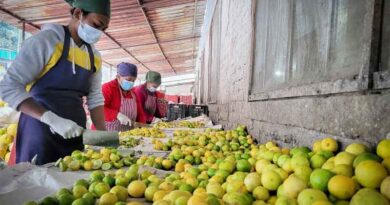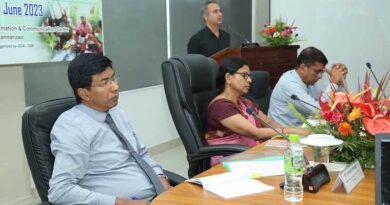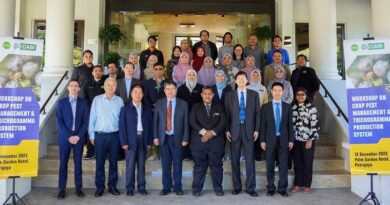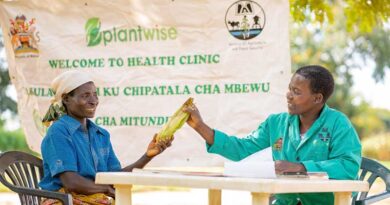Recommendations made for plant clinic progress in Afghanistan
12 December 2023, Afghanistan: Plant clinics are an important way that we support farmers in Afghanistan. The programme helps smallholders and kitchen gardeners alike. It aims to give them the knowledge they need to protect their crops from pests and diseases. And by doing this, it helps to safeguard their crop yields and livelihoods.
Since 2013, 258 plant clinics have taken place in 207 locations across 31 provinces.* And, in total, the programme has trained 543 male and 30 female plant doctors. In March this year, stakeholders held a review and planning meeting to discuss the PlantwisePlus programme in Afghanistan. The meeting offered a valuable opportunity to examine the progress made around the country.
Meeting to review the progress of PlantwisePlus in Afghanistan
CABI’s country coordinator for Afghanistan, Zakaria Faizi, welcomed participants and opened the meeting. Habib Rahman Shirzad Ghorbandi, director of plant protection and quarantine at PPQD, AED Provincial Departments, also welcomed attendees and talked about the importance of plant protection authorities. These are the organizations responsible for running the clinics. Joining from India, CABI’s Dr. Malvika Chaudhary, Asia Coordinator, gave a presentation about PlantwisePlus. This programme focuses on pest preparedness, advising farmers and pesticides risk reduction.
CABI data manager, Ahmad Shaker Omarzada, talked about the Plantwise Online Management System (POMS). CABI developed this system to provide data management support across the programme. He also talked about plant clinic data flow and other issues such as clinic monitoring and evaluation. Attaullah Hanif, CABI’s immune officer, gave a presentation about challenges encountered at the plant clinics over the past two years. Participants spent time discussing hurdles and exploring ways to overcome them.
What issues affect plant clinics in Afghanistan?
One of the issues included staff turnover. A number of plant doctors have retired. Others have left to pursue higher education in other countries or moved on to other jobs. This creates challenges for running the clinics. Furthermore, some plant clinics are connected to projects that have come to an end. In these cases, plant clinics stopped running. Mr. Abdul Ghafoor Babori, Head of Plant Pest and Diseases Laboratories, inquired about the reactivation of clinics. He also asked how it might be possible to develop plant clinics further across the whole of Afghanistan.
The participants discussed technical challenges. Rural data managers are sometimes slow to transfer data to the system. And sometime, the e-tablets used for e-clinics become damaged or do not work properly. The group also discussed biological control of pests and diseases. They considered whether it would it be possible to train plant doctors in biocontrol methods in the Plant Protection and Quarantine Directorate (PPQD) biological control laboratory. The group deliberated the reproduction of beneficial microbes and organisms to support a first biological control project in Afghanistan. This would help to reduce the use of chemical pesticides. This is in keeping with the PlantwisePlus and its implementation.
What recommendations were made for PlantwisePlus in Afghanistan?
The participants made a number of recommendations for improvements. At clinics, one of the plant doctors should be assigned with pest and disease surveillance. This can help to ensure better overall pest management. Monitor each plant clinic to understand whether specific issues affect all clinics throughout the country. List quarantine and other plant pests. And distribute these lists to the plant quarantine sections in border provinces. This establishes a plant pest and diseases database at a central level.
Regarding funding, the recommendation is to cover plant doctors’ costs for mobile phones and transport. And increase the number of e-clinics for enhanced pest and disease surveillance.. Indeed, all plant clinics should be changed to e-clinics and include regular data management. The participants supported reopening clinics that have closed. And recommendations were made to increase the number of clinics. Adequate budget will be needed to pay for the plant clinics’ equipment and running.
And at the end of meeting, the deputy minister’s technical advisor, Dr Mirwais Niazi, gave a speech. He promised to convey the participants’ requests to authorities for approval and action going forward.
Also Read: Crystal Crop Protection acquires GRAMOXONE® from Syngenta for the Indian market
(For Latest Agriculture News & Updates, follow Krishak Jagat on Google News)















